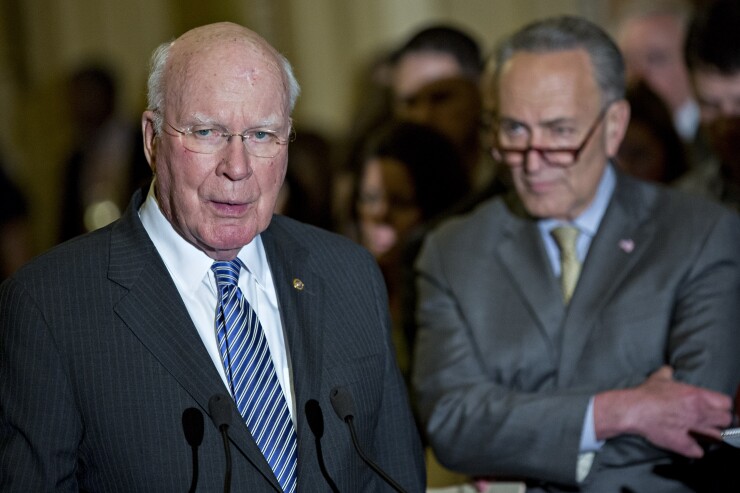
WASHINGTON – Humanitarian advocates are optimistic Congress will increase the $44 billion of disaster assistance for Puerto Rico, the U.S. Virgin Islands, Texas and Florida requested by the Trump administration on Nov. 17, just before the lawmakers went on their Thanksgiving recess.
But they have echoed the criticism by congressional Democrats at the suggestion by the White House that the two financially-strapped territories provide matching funds for part of the money and that Congress enact $59.2 billion in offsetting spending cuts.
The White House recommended that one major piece of the emergency supplemental request -- $12 billion for the Community Development Block Grant Disaster Recovery program – should be awarded states and territories once they “present cost-effective solutions to reducing future disaster risk and lowering the potential cost of future disaster recovery.”
More than half of the request is for $25.2 billion for disaster relief administered through the Federal Emergency Management Agency and Small Business Administration.
Other pieces include: $4.6 billion for repair or replacement of damaged federal property and equipment and other federal agencies' recovery costs; $1.2 billion for an education recovery fund; and $1 billion for emergency agricultural assistance.
Sen. Patrick Leahy, D-Vt., has said Puerto Rico won’t get that funding because “it favors states that can provide matching funds.”
Leahy observed that thousands of residents of Puerto Rico are abandoning their homes and moving to the mainland. “Much like in the delayed response to Katrina and the people of New Orleans, we are seeing the people of Puerto Rico lose faith that we will help them rebuild,” he said.
Senate Minority Leader Chuck Schumer, D-N.Y., also said the administration’s request is insufficient to meet the needs of Puerto Rico, the U.S. Virgin Islands, Florida and Texas as well as western states hit by wildfires.
Schumer also highlighted the administration's failure to address “the impending Medicaid funding crisis the islands are facing" or to "provide waivers to cost share requirements that are sorely needed due to Puerto Rico and the U.S. Virgin Island’s financial challenges.”
Laura Esquivel, director of national Advocacy for the Hispanic Federation, and Eric LeCompte, executive director of Jubilee USA Network, told The Bond Buyer they are hopeful Congress will rework the administration’s request and provide more funding.
“I am personally encouraged that so many members of Congress from both sides of aisle have traveled to Puerto Rico and seen things for themselves,” Esquivel said. “I think there are people in the House who we can appeal to even though in the last supplemental they gave the president exactly what he asked for.”
LeCompte stressed the urgency of stepping up the recovery effort.
“I think Congress will step up and we will see in the coming weeks and months more packages around both relief and recovery and rebuilding aid as well as some financing issues addressed,” LeCompte said.
LeCompte said his organization supports having the oversight board established under PROMESA review contracts that are signed for spending federal funds in the recovery effort
“There appears to be a need for some transparent and accountable way that contracts are reviewed,’ he said. “We just want it to be expedient and fast.”
The Federal Emergency Management Agency has received just over 1 million applications for disaster assistance through Nov. 21, according to a FEMA spokesman.
FEMA has approved more than $180 million under the Individual Assistance Program and $428 million under the Public Assistance program.
“There are over 10,000 federal employees working in Puerto Rico in the response and recovery efforts,” FEMA said. The agency said it has installed 645 generators, conducted almost 1,300 generator assessments, provided over 93,000 tarps, and the U.S. Army Corps of Engineers has installed over 11,000 blue roofs.
But humanitarian advocates say that’s not enough.
“The territories are getting particularly shortchanged,” said Esquivel of the Hispanic Federation. “At least there is some specific money in there for the states.”





